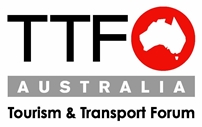
Tracking Brisbane’s public transport
The punctuality and reliability of Brisbane’s bus and rail network continue to be amongst the highest of any capital city in Australia, according to a new report released by the Tourism & Transport Forum Australia (TTF) and L.E.K. Consulting.
The TTF-L.E.K. ConsultingPublic Transport Barometer provides up-to-date insights into the performance of major metropolitan public transport networks in Australia and tracks just how many Australians are choosing to take public transport in their day-to-day lives.
“While the report has found that a number of factors saw a slight decline in bus, rail and ferry patronage in 2017, in fantastic news for Brisbane commuters it also found that congestion levels are increasing at a lower rate than any other capital city despite strong population growth,” TTF CEO Margy Osmond said.
“While Brisbane’s bus and rail patronage has remained relatively flat, the punctuality and reliability of it bus and train services continues to overshadow Sydney and Melbourne, which is a recognition of the significant public transport investment by the Queensland Government in recent years.
“The report found thatFairer Fare scheme introduced in December 2016 has reduced public transport fares, however a range of other factors appear to have curbed patronage growth including the replacement of ‘9 and free’ scheme with the ‘8 and 50’ scheme and the impact of ex-tropical Cyclone Debbie on local infrastructure such as ferry wharfs and rail lines.
“Shortages of train drivers in late 2016 and timetable challenges are also likely to have had an impact.
“However, despite the slight decline, Brisbane residents took 51 million tail trips, 112 million bus trips and 6.7 million ferry trips last year.”
L.E.K. Consulting Senior Partner, Simon Barrett, said this edition of the Transport Barometer focused on rising congestion levels in Australia’s capital cities and the subsequent impact on public transportation, and ranked Brisbane the 96th most congested city in the world.
“While Brisbane obviously does not have the congestion problems of a number of other capital cities – it is still a problem,” Mr Barrett said.
“Brisbane’s congestion adds an additional 27 minutes on to the daily commute of the average local resident – or 103 hours a year.
“Increasing congestion levels in Australia are estimated to cost $16.5 billion to metropolitan cities – $6 billion in private time costs, $8 billion in business time costs, $1.5 billion in extra vehicle operating costs and $1 billion in additional air pollution costs.
“These are avoidable costs. This paper sends a clear message to the Queensland and Federal Governments that without increased investment in key congestion-busting projects such as the Cross River Rail the cost of congestion and the negative impact on people’s day-to-day lives will continue to skyrocket.”
